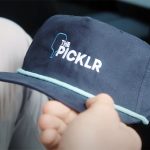In a second quarter that was dubbed “outstanding” by company chairman and CEO Martin Franklin, Jarden Corporation, parent to K2, Shakespeare, Stearns, Rawlings, Worth, Marmot and Coleman, among many other brands, exceeded analyst expectations by reporting an increase in profits on cost cutting and inventory management efforts that offset a 6.6% decrease in overall revenues.
Net sales for the second quarter fell 6.6% to $1.27 billion compared to $1.36 billion in the year-ago period. Management attributed much of the decline to $48 million of “unfavorable foreign exchange fluctuations” and $22 million to lower sales at in their Process Solutions group. Excluding the impacts of a stronger dollar and the Process Solutions hit, revenues were down approximately 1% on a weak retail environment.
Gross margins increased 10 basis points from 28% to 28.1%. The slight improvement in margins was attributed to increased inventory management efforts and other cost reduction initiatives. As a percentage of sales, SG&A was relatively flat at 18.7% but was reduced by $16.0 million at an absolute level. The company reported net income of $44.9 million, or 53 cents per diluted share, compared to a net income of $43.0 million, or 56 cents per share, in the year-ago period. On a non-GAAP business, net income for the quarter was $51.4 million, or 60 cents per share, as compared to $54.8 million, or 72 cents per share, in the year-ago period.
The companys Outdoor Solutions segment, which includes the K2 Rawlins, Coleman, Marmot and Shakespeare brands, among others, was negatively impacted by the stronger dollar and the “overall recessionary environment.” The lone bright spot within the outdoor segment came from the fishing business — which was boosted by the recent integration of the Pure Fishing and Shakespeare brands.
Management noted that lower gas prices in 2009 boosted the fishing business while rising unemployment numbers gave customers more time to fish and led to consumers fishing to supplement grocery dollars. The consumable segment of fishing, which includes fishing line brands Stren and Trilene, offset weakness from durable goods like rods and reels. The company said sales of U.S. fishing licenses are up approximately 11% for the 2009 year-to-date period as compared to a relatively flat 2008.
Management said Coleman performed well during the quarter, boosted by strength from tents and sleeping bags — a recurring trend that has arisen from many consumers decisions to opt for less-pricey “staycations” as a result of declining levels of discretionary income. The company noted particular strength from Colemans new products, including the party stacking cooler and the quad lantern. Managements said camping permits were up by about 10% at state and national parks.
Team sports, led by Rawlings and Worth, saw strength from consumable products like baseballs offset weakness from the premium end.
Expectedly, Jarden management emphasized that they are seeing continued weakness from high-ticket items, which includes the companys ski business. Franklin added that while retailers are starting to become a little more bold with their orders, “it is nothing to be excited about.”
The companys international business, boosted by strength from Latin America, performed well and the company expects ski sales in Europe to improve near the back-end of 2009.
Regarding outlook, the company said it remains comfortable with current consensus estimates, including an anticipated double-digit decline in the winter sports category.















